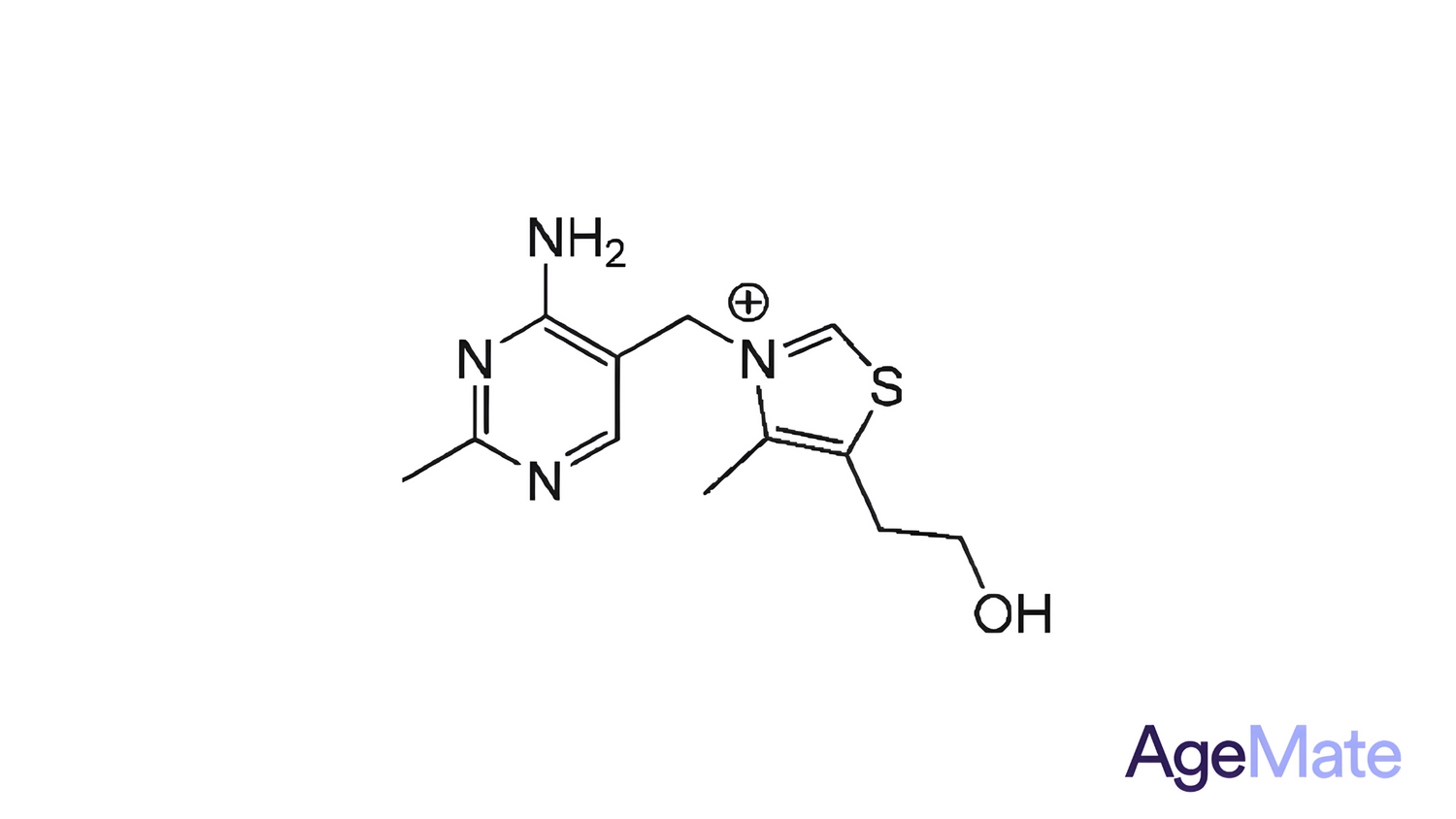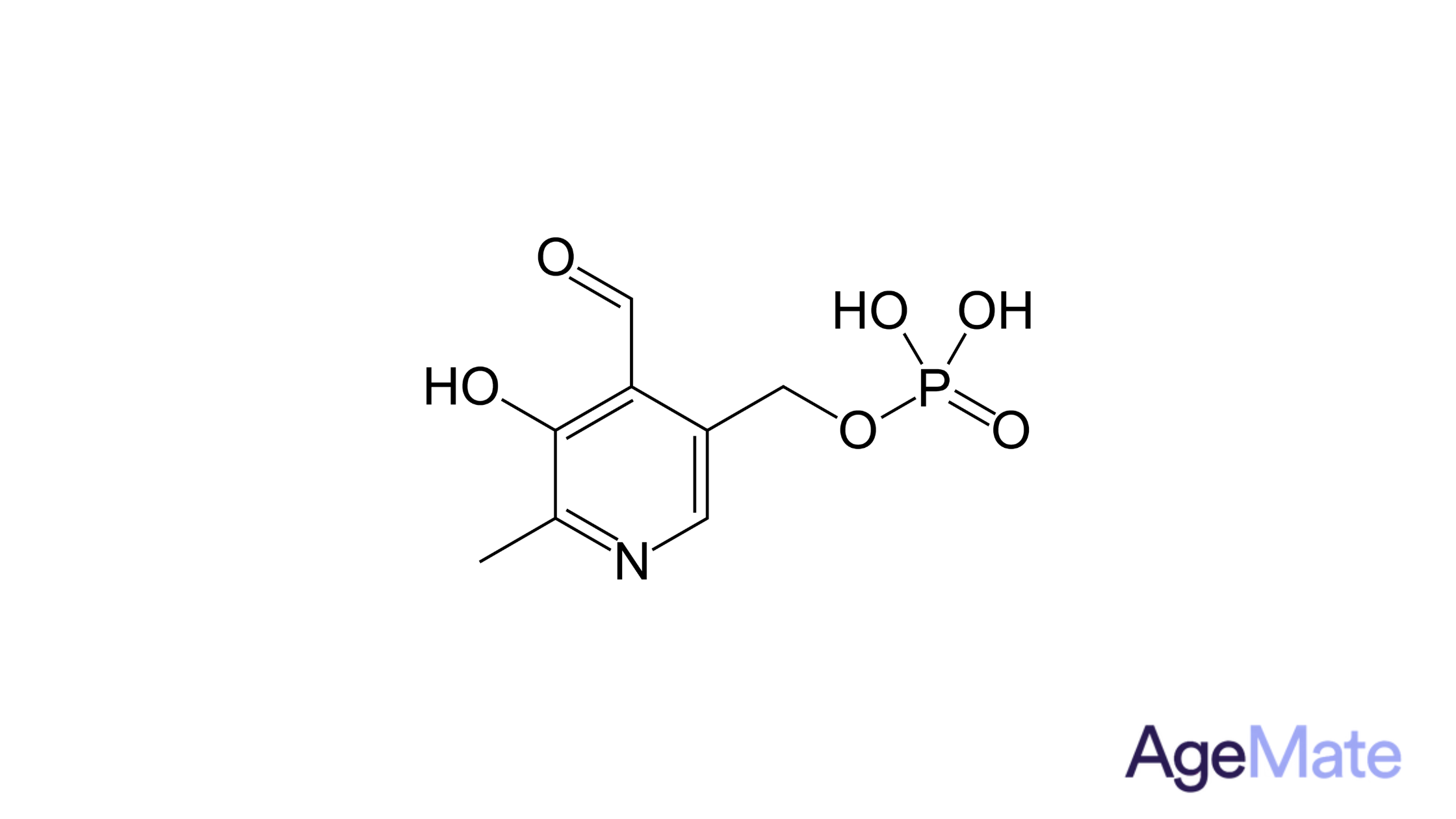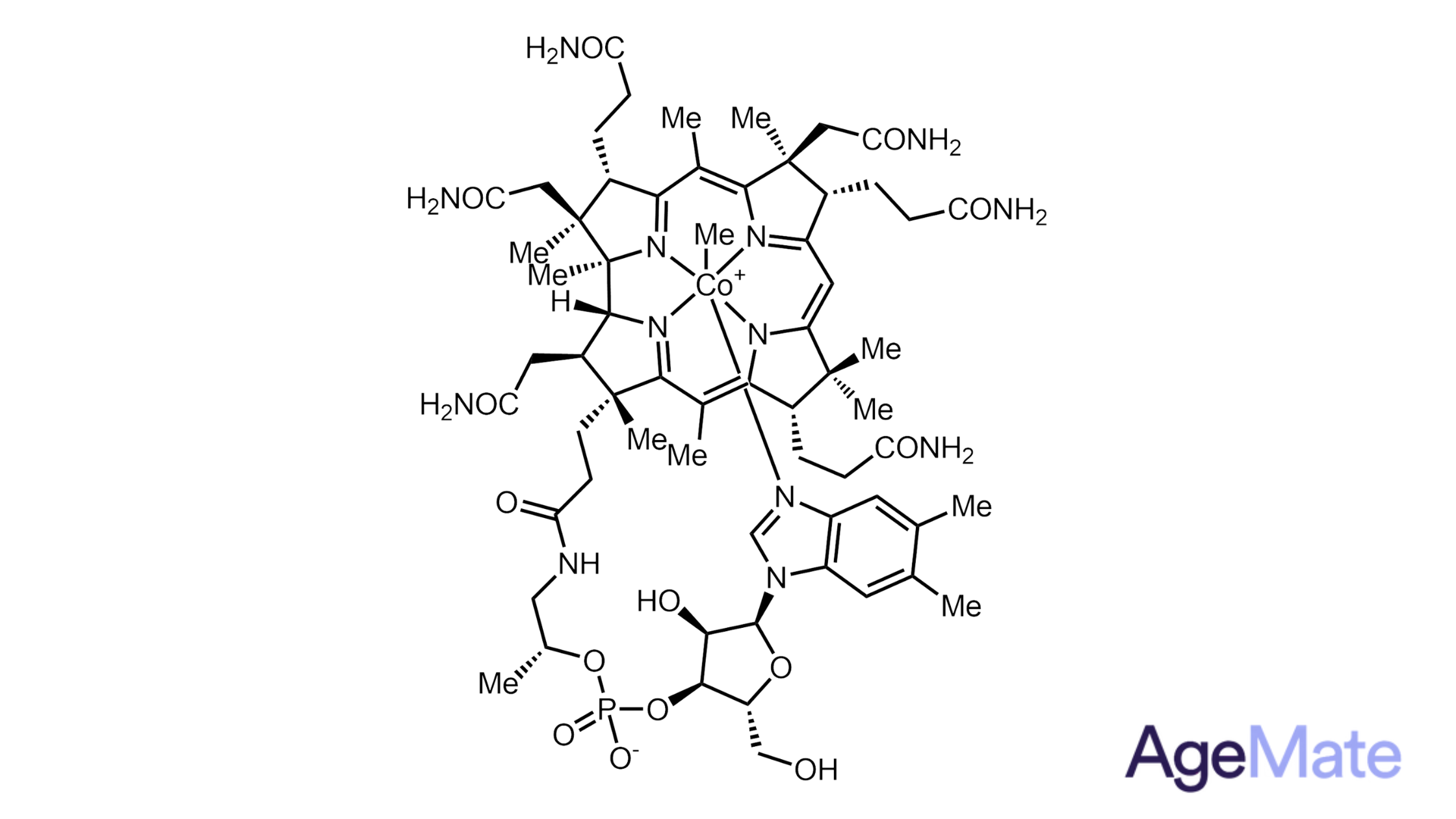Summary
|
|
What is Thiamine HCI (Vitamin B1)?
Thiamine HCl, the hydrochloride salt of Thiamine (Vitamin B1), is a water-soluble vitamin essential for converting carbohydrates into energy, crucial for the metabolism of glucose. It's widely used in dietary supplements and medications due to its enhanced stability and water solubility (R).
Thiamine HCl is absorbed well by the body, ensuring an effective way to meet the daily intake requirements of this important vitamin, especially in individuals at risk of deficiency.
Thiamine HCI (Vitamin B1) Impact on Aging
Thiamine deficiency is linked with elevated plasma total homocysteine concentrations, which are associated with an increased risk for certain diseases such as coronary artery disease. Older adults may have a high prevalence of low B vitamin status, including thiamine, and elevated plasma homocysteine concentration (R).
Thiamine deficiency in mice produces fibre cell degeneration in mouse lenses, indicating that thiamine is critical in preventing oxidative stress-related degeneration. Maintaining adequate thiamine levels may help prevent or slow down age-related degenerative diseases (R).
Subclinical thiamine deficiency in older adults is improved with thiamine supplementation, leading to subjective benefits such as improved quality of life and decreased systolic blood pressure and weight. This implies that even mild thiamine deficiency can affect the health and well-being of older adults, and supplementation can have positive effects (R).
Thiamine deficiency (TD) has been shown to cause long-lasting neurobehavioral deficits in mice, suggesting that even temporary thiamine deficiency can have prolonged effects on behaviour and cognitive function. This underscores the importance of maintaining adequate thiamine levels for cognitive health, particularly in aging populations (R).
Thiamine HCI (Vitamin B1) and Longevity Studies
Interestingly, thiamine has been shown to induce systemic acquired resistance (SAR) in plants against fungal, bacterial, and viral infections. While this effect is in plants, it highlights thiamine's potential role in activating defence mechanisms that might have parallels in animal systems and an impact on longevity (R).
Beyond its coenzyme role, thiamine and its derivatives have been implicated in the allosteric regulation of several enzymes involved in energy metabolism, suggesting a complex role in cellular and metabolic processes that could indirectly influence longevity (R).





